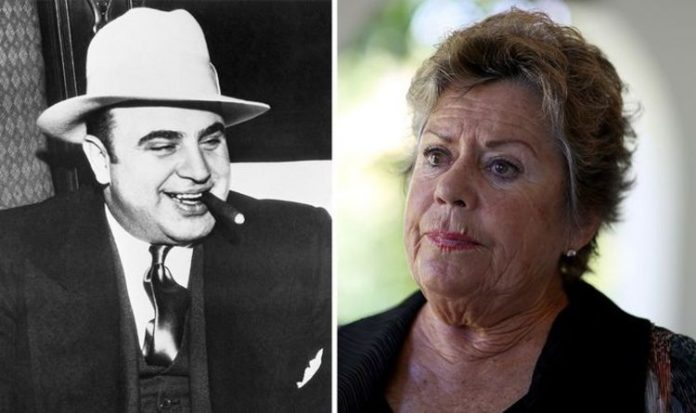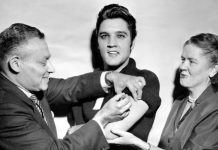Capone: Tom Hardy plays a notorious gangster in crime film
Scarface, as he was known during his heyday, is one of history’s most notorious crime bosses. The American gangster was born in New York to Italian parents but rose to prominence in Chicago during the Prohibition, where he became “Public Enemy No.1”. Eventually he was convicted and sentenced to 11 years in prison for tax evasion – and it was during this time he showed signs of neurosyphilis – a brain disease that would eventually lead to him being released four years early.
Tom Hardy became the latest actor to portray Capone, playing the mobster boss living out his final dismal years in his Florida mansion in the ‘Capone’ film added to Netflix last week.
Released originally last year, it paints Capone as a man succumbing to dementia as a result of an infection of the central nervous system caused by the sexually transmitted infection, syphilis.
In the film, he acknowledges that he hid $10million (£7.17million) before he was convicted, although he cannot remember where it is – prompting fierce interest from his close circle and the FBI alike.
No money has ever been recovered, but according to his great-niece Deirdre Capone he went to elaborate lengths to hide “hundreds of millions of dollars” that he put aside for his family.
Al Capone’s relative claimed she knew where his money is hidden (Image: GETTY)
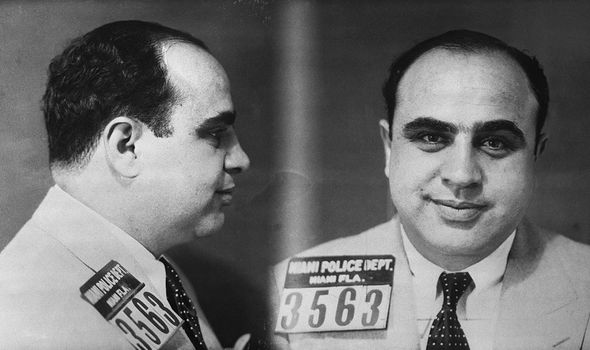
Capone was a notorious gangster (Image: GETTY)
The 81-year-old previously stated that the money is still out there – stashed in hidden homes, secret underground vaults and containers among various areas.
She said: “I tried to do whatever I could from my perspective to locate the money but I don’t have the wherewithal, I don’t have the legal means.
“I really do believe that a lot of the money was put into the safety deposit boxes in Cuba. I remember seeing keys. But I’m sure they were all in different assumed names.”
Ms Capone added that even if the money in Cuba had gone, her “smart” uncle would have spread his fortune across the US, too.
She recalled visiting one of Capone’s secret hideaways in Wisconsin.
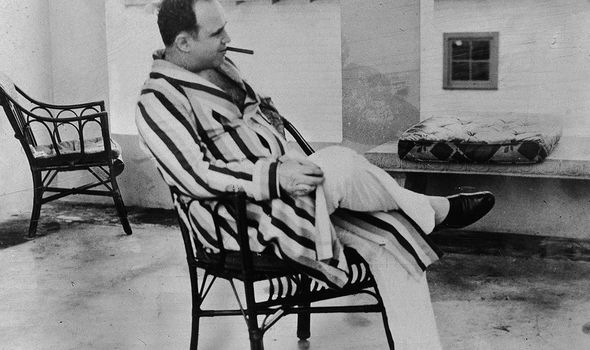
The mob boss was severely ill in his final years (Image: GETTY)
She added: “It is not known that my uncle had a property in Wisconsin but I was there, I experienced it many times.
“That has never been told and it’s part of the business that I think people would be fascinated with – it wasn’t a house, but more of a conference centre where Al and other bootleggers would meet and talk.”
She did not believe there was any money in Chicago, a theory furthered by an empty vault found in 1986, but identified a number of more likely spots.
She told The Sun in 2019: “I also know they would meet in places in Hot Springs, Arkansas and Moose Jaw, Canada.
“I know there is no money in any place in Chicago but I’m certain that it is still lying around hidden in other places.
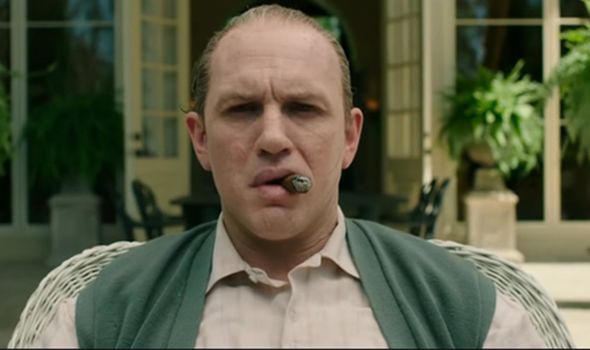
Tom Hardy stars in the Netflix film (Image: NETFLIX)
“But there’s no will or mention of anything, there’s no bootlegger that ever left a will.
“My grandfather told me, not once, not twice, that many times. ‘Deirdre, you have nothing to worry about. There’s some money there for you’.”
Ms Capone, who has written her own book about the infamous gangster, remembered spending Christmas 1946 with him in Chicago before he returned to Florida and became ill.
Capone was freed on November 16, 1938, and his family noticed his decline immediately.
His last few years were also detailed in Deirdre Bair’s 2016 biography ‘Al Capone: His Life, Legacy and Legend’ after she conducted a number of interviews.
She described him as “delusional, sick, broken and demented – a mindless blubbering idiot”.
READ MORE: Capone was ‘delusional and broken’ in final years as Tom Hardy’s Netflix film criticised
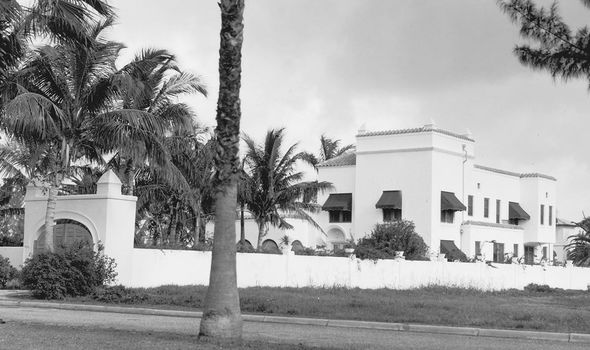
Capone’s mansion in Florida, where he lived out his final years (Image: GETTY)
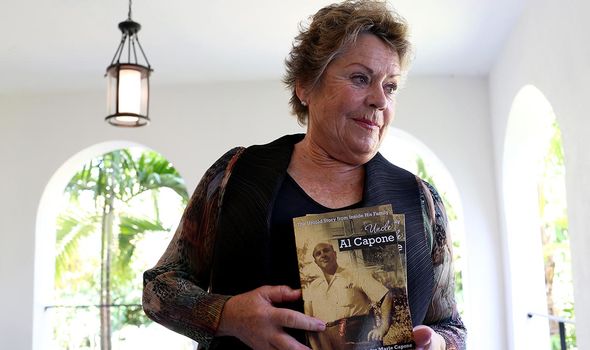
Deirdre Capone revealed some details about her great uncle’s life (Image: GETTY)
According to her accounts, Capone was subject to wild mood swings and panic attacks.
He is said to have had imaginary conversations with long-dead mobsters.
In 1942, he was one of the first Americans to receive the antibiotic penicillin as a treatment for syphilis after the drug began to be mass-produced.
But this did little good as his condition was so advanced.
In 1946, Capone was deemed by medical and psychiatric experts “to have the mental capabilities of a 12-year-old”.
On January 25, 1947, Capone died of cardiac arrest after suffering a stroke, aged 48.
DON’T MISS:
Tehran’s war capability revealed amid tensions with West [ANALYSIS
US soldier risked ‘cataclysmic outcome’ with defection to USSR [COMMENT]
Turkey close to Russia’s grasp amid Trump fury after Venezuela ruling [ANALYSIS]

